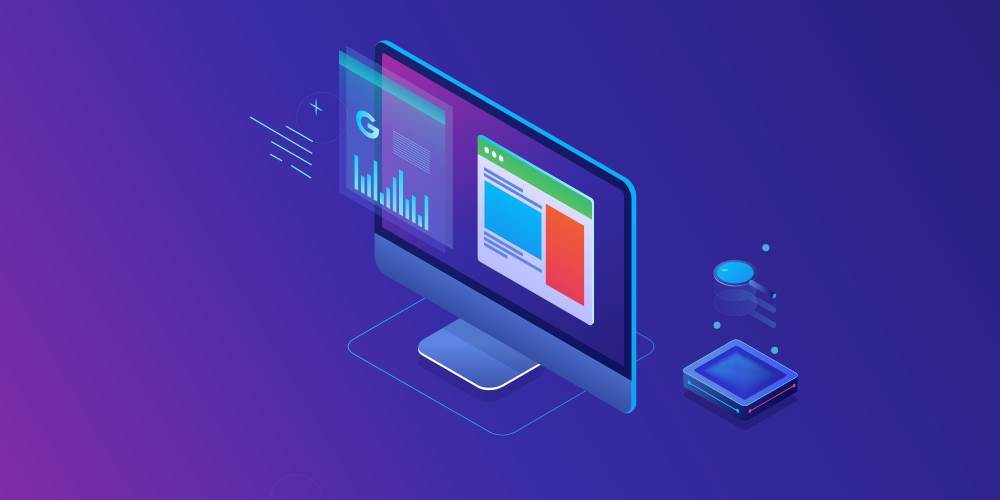Just when you thought it was safe to check your analytics… Google™ is working on a new version of Google™ Analytics. Called GA4, it launched quietly in 2019, a little louder in the fall of 2020, and it’s been crowned the future of Google™ Analytics. Fasten your seat belts -- here’s an introduction into GA4.
What is the new Google™ Analytics?
The new Google ™ Analytics (GA4) is a data-driven model with AI and machine learning. Eligible sites can benefit from insights into your unique website and its users. If you have enough traffic, predictive modeling can be implemented to see who your next customers are and who’s ready to drop off. As with all analytics, the more data you can give them over a longer period, the better your results.
Google™ also touts that GA4 has improved user privacy, with or without “cookies.”
Do I really need analytics at all?
Analytics is incredibly useful, in fact, indispensable to understand how people are using your website, what content is working, who your users are, and more. If you’re not already using Google™ Analytics or another platform, get started now.
Is GA4 a big change?
Yes. It is a completely new tool from Universal Analytics (UA), which is now sometimes called Google™ Analytics 3. GA4 is a whole new animal.

Can’t I just use the analytics I have now?
For now, yes. But Google™ will stop collecting new data on properties on June 30. It’s possible that it could be extended but make plans now to migrate. But if you haven’t started using Google Analytics, now is the time.
You can run both UA and GA4. But be clear: the data collection methods are different, so if you’re comparing data, don’t expect a 1:1 measurement number.
What’s different about GA4?
Pretty much everything. So be open to a new way of thinking about your website’s analytics.
GA3 focuses on website usage, sessions and time on page, “web metrics”. GA4 focuses on events and audiences and engagement, “audience” metrics. This positions your website as a robust marketing tool, allowing you to show proof to your boss that the website is good investment.
In GA4, you can still see things like pageviews, location, and gender, but the emphasis is not on how many people came or how many pages were viewed, but what they did when they got there. Were they “engaged” with your site?
Like with UA, you can integrate Google™ Search Console, Google™ Ads, and other Google™ products to gain a fuller picture of your customer journey.
The idea of engaged users forces marketers to address something that was included in UA, but often overlooked: goals, events, and conversions. That is, what actions did users take on your site that translates into revenue for your company?
With GA4, marketers must address something that was included in UA, but often overlooked: goals, events, and conversions. That is, what actions did users take on your site that translates into revenue for your company?
You can also integrate website and app data into the GA4 platform. Previously, apps and websites data were in separate Universal Analytics containers. Consolidation gives you a holistic picture of your media. GA4 also tracks people across devices – including watches and smart TVs when applicable. All this data is integrated.
GA4 automatically tracks basic actions on your site like pageviews and downloads. The good and the bad is that pretty much everything is customizable. With fewer automatic reports, your analytics will be more tailored to the data you’re interested in.
The GA3 platform shows a lot of data, while GA4 is more simplistic and visual in its approach to data, using a card-style design.
With these differences, it’s unwise to compare data between GA3 and GA4. It is nearly impossible to get numbers to match, due to how the platforms collect data.
What’s missing
Even though it officially launched in July 2023, GA4 remains a work in progress. You won't find some of he elements you are used to in Universal Analytics. Right now, there’s no way to schedule or email GA4 reports, no annotation capabilities, and no intuitive way to set up report templates. You would need to use Google's™ Looker Studio to build emailable reports.
Get to Know GA4
If you're an LRS Antilles customer, you can relax -- we've migrated your site to GA4 and you're already collecting data. UA is no longer scanning your site, so you need to get comfortable with GA4. There are a lot of tutorials online, but if you need help, reach out to me at LRS Web Solutions.